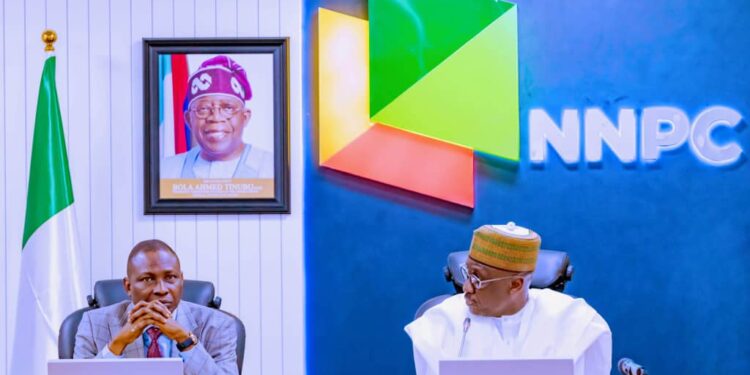The group chief executive officer of the Nigerian National Petroleum Company Limited (NNPCL), Mele Kyari, has disclosed that the company deactivated 6409 illegal refineries in the Niger Delta region of the country.
Kyari disclosed this while receiving the chairman of the Economic and Financial Crimes Commission (EFCC), Ola Olukoyede, in his office in Abuja.
The NNPCL boss who solicited the support of the anti-graft agency in tackling the menace of crude oil theft in the country, said that going by the volume of oil stolen daily and the brazenness with which the perpetrators operate, crude oil theft was the most humongous and virulent economic crime in Nigeria that must attract the attention of the EFCC.
According to him, “We have deactivated 6,409 illegal refineries in the Niger Delta region. Today, we have disconnected up to 4,846 illegal pipes connected to our pipelines, that is out of 5,543 such illegal connection points. That means there are a vast number of such connections that we have not removed.
“These things don’t just happen from the blues. They happen in communities and locations we all know. As we remove one illegal connection, another one comes up.
“This kind of thing does not happen anywhere else in the world. When we say illegal connections, they are not invisible things, they are big pipes that require some level of expertise to be installed. Some of them are of the same size as the trunk line itself. No one would produce crude oil knowing fully well that it is not going to get to the terminal. That is why nobody is putting money into the business. So, you can’t grow production,” he said.
The GCEO, seeking partnership with the EFCC to curb the menace of oil theft, said that the very purpose of the commission is to curtail economic crimes, and there is no bigger economic crime than what is happening in the oil and gas sector.
On corruption within the system, Kyari explained that by law, NNPC Ltd is required to maintain high ethical standards and has put in place structures and measures to curb discretionary actions which fuel corruption, stressing that most processes in the company have been fully automated to discourage arbitrary actions.
In his presentation, Ola Olukoyede, the Executive Chairman of EFCC, expressed satisfaction with NNPC Ltd.’s commitment to issues of ethics and code of conduct.
He, however, challenged management to ensure that the codes of ethics and regulations are complemented with monitoring and enforcement to enhance deterrence.



